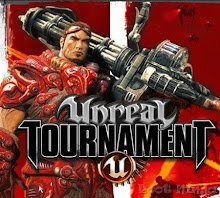How did it feel to have more or less money than other people in the class?
It kind of annoyed me because it is unfair. They can have a better health than me just because they had more luck.
How did it feel to see what you could and could not afford at the Global Mall?
Same thing as above, I felt unlucky because some people could afford it.
How many of you could not afford education? What would your lives be like if you could not go to school?
I was in the $1000 group so I could afford education, but it is in a bad school so my life could be ruined.
How would it feel to have to choose between food and health care?
It would be awful because either I die of malnutrition or I die of any small disease. Even if it might be better to choose health care. By choosing a good health care, if you don’t have enough food they could give you some so you don’t die.
How many of you have ever been very sick or gone to a hospital or had friends and family who have? What would your life be like now if you had been unable to get medical care?
I already have been very sick when I was a baby and if there wasn’t any hospital around, I might not have been living today. If there hadn’t been a hospital around when I had small diseases they might have turned into big diseases and I might have died again.
What were the impacts caused by people with fewer Global Mall Dollars, and what were the impacts caused by people with more Global Mall Dollars?
They hardly did any environmental impacts, but I don’t think they can survive till the end of the month. They don’t have a choice and since they are poor they cannot use any non environmental-friendly products.
Discuss the fact that roughly one-fifth of all people worldwide survive on
less than $1 (U.S.) a day – how does this limit their choices, and what are the environmental, social, and global security implications of this?
I think it is impossible to survive with 1 dollar a day because the people that gained 200 dollars a month had no choice and could hardly survive. Imagine if you only won 30 dollars in a month. You can’t afford for health and food. You can only buy things that have no cost. How can a human survive with no food and no health?
When you were choosing what to buy, did you think about the environmental impact? For those of you in the lowest income range, did you have a choice about the environmental impact you produced? If not, how did it feel to
not have a choice?
I was in the $1000 group and I’ll be honest… I hardly thought about the environmental impact. I mostly thought about what way I could survive best which is already hard. To me the most important is how I can survive, not the environment. The $200 group didn’t have a choice for anything and it must have felt awful. They didn’t hurt the environment, but they hurt themselves a lot.
Kiribati
15 years ago
